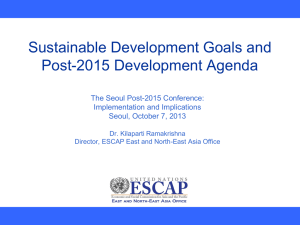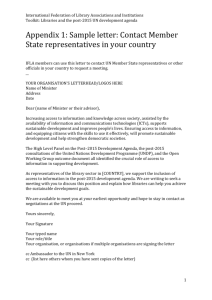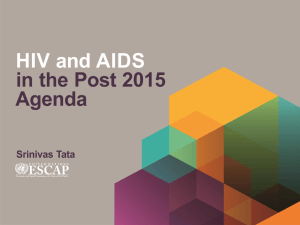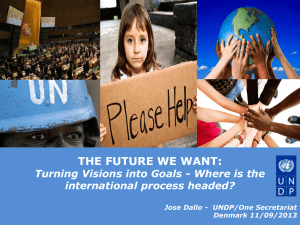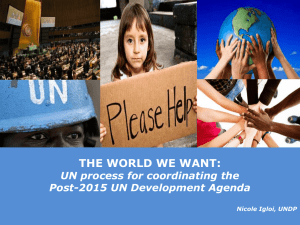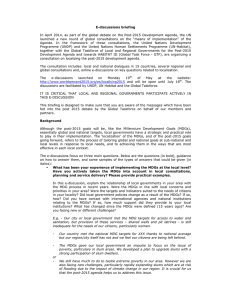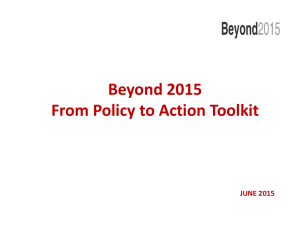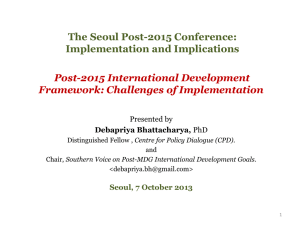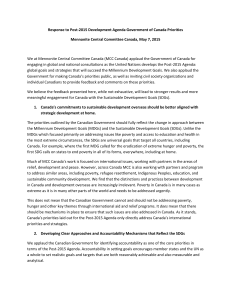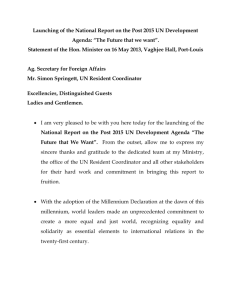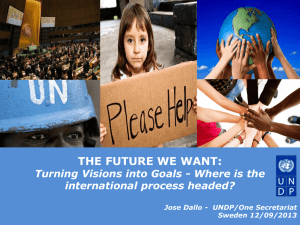Presentazione di PowerPoint
advertisement
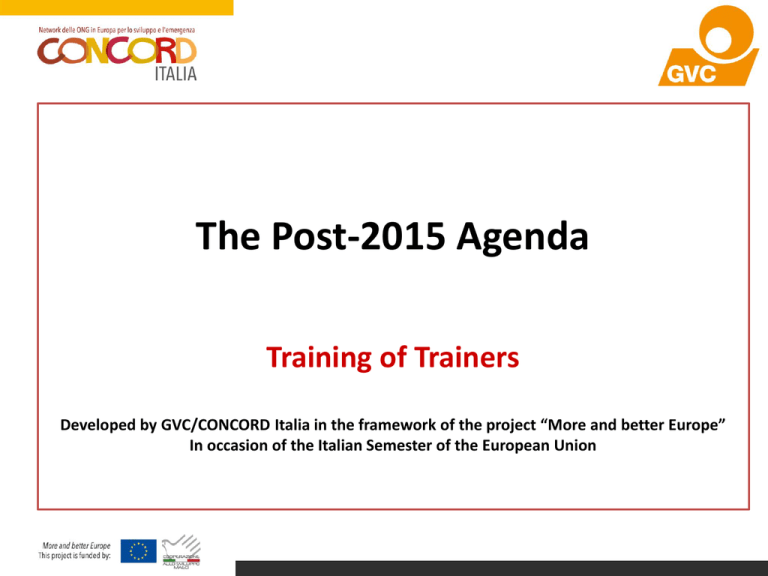
The Post-2015 Agenda Training of Trainers Developed by GVC/CONCORD Italia in the framework of the project “More and better Europe” In occasion of the Italian Semester of the European Union Millennium Development Goals (MDG) In 2000 the Millennium Declaration was signed by the UN Member States, that committed to reach 8 development goals by 2015: A new context, new objectives to set out • The Millennium Development Goals (MDG) did not address to the structural causes of poverty; • Inequality and the environmental crisis are rising; • The economic, financial and job global crisis are hitting the northern countries as well; • Problems as poverty, social exclusion, hunger, malnutrition, poor social protection and climate change persist, are more and more global and therefore require global solutions; The new development agenda will have to respond and address to this new global context Two processes… In 2010 the UN General Assembly requested UN Secretary-General to lead the work to advance the new UN development agenda beyond 2015, when the MDGs will expire In 2012 the UN General Assembly decided to launch a parallel intergovernmental process to define new Sustainable Development Goals (SDGs) ..and a single Agenda MDGs vs SDGs: The main differences The current challenges • To adequately measure the progress towards the goals, taking into consideration the relative efforts of each country, going beyond the GDP measure and the main focus on economic growth • To hold all countries accountable for the implementation of the framework, through an inclusive definition process of the goals, establishing common but differentiated responsibilities based on national contexts and promoting PCD • To include the economic, social and environmental dimensions of sustainability, with an approach based on human-rights, social justice and good governance, to start structural reforms to define a new sustainable model to address the new global challenges • A new global partnership for development to go beyond the North vs South paradigm, involving all development actors, and introducing accountability mechanisms, for the private sector as well The EU in the Post-2015 debate • Membership in the High Level Panel on the Post-2015 development agenda (by Andris Piebalgs, the outgoing European Commissioner for Development) • In 2012 the EU conducted consultations involving civil society, international organizations, the private sector, research institutes and individuals • Release of the European Report on Development • Communications expressing the EU position “A decent life for all – Ending poverty and giving the world a sustainable future” e “A decent Life for all: from vision to collective action” Italy in the Post-2015 debate • Participation in the Open Working Group to define the new Sustainable Development Goals • Establishment of a Thematic Group on Post-2015 in the Inter-Institutional Table on development cooperation to develop the Italian contribution to the Post-2015 agenda (participation of representatives of several ministries, Banca d’Italia, Istat, Confindustria, CeSPI, Concord Italia, GCAP, and several NGOs) • The issue is a priority for the programme of the Italian Semester of Presidency of the European Union The role of ONGs and CSOs Agenda Post 2015: il dibattito sugli SDGs e il ruolo dell’Europa e dell’Italia per un futuro di Sviluppo E(C)QUOsostenibile National Consultations organized by CONCORD Italia and the MAECI 9 September – Rome Advocacy activities: towards national governments intergovernmental negotiations are approaching CONCORD ITALIA - GCAP Consultations: UN Dialogues on implementation while the
